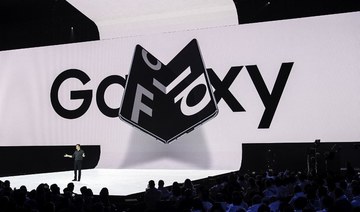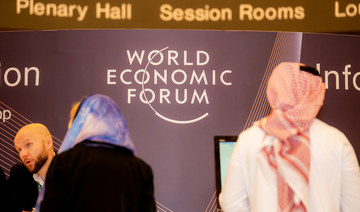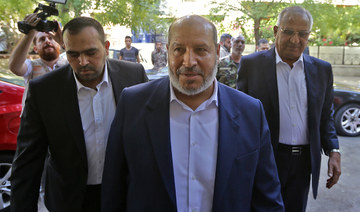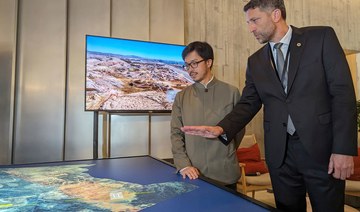SEOUL: Shares in Samsung Electronics climbed nearly three percent Tuesday on the back of its chief rival Huawei’s mounting problems, including a decision by Google to sever ties with the Chinese mobile phone maker.
It is the latest in the months-long saga between Huawei and the United States analysts warn could see Chinese semiconductor demand fall, threatening a nascent Asian recovery in the industry.
US Internet giant Google, whose Android mobile operating system powers most of the world’s smartphones, said this week it is cutting ties with Huawei to comply with an executive order issued by President Donald Trump.
The move could have dramatic implications for Huawei smartphone users, as the firm will no longer have access to Google’s proprietary services — which include the Gmail and Google Maps apps.
Investors bet Huawei’s loss could benefit Samsung, the world’s biggest smartphone maker which has been facing increasing competition from its Chinese rival, sending its shares up 2.7 percent at closing on Tuesday.
Analysts say the US ban will damage Huawei’s ability to sell phones outside China, offering Samsung a chance to consolidate its position at the top of the global market.
“If you are in Europe or China and couldn’t use Google map or any Android services with a Huawei smartphone, would you buy one?” MS Hwang, an analyst at Samsung Securities, told Bloomberg News, adding: “Wouldn’t you buy a Samsung smartphone instead?“
Samsung accounted for 23.1 percent of global smartphone sales in the first quarter of this year, according to industry tracker International Data Corporation, while Huawei had 19.0 percent.
But Huawei’s troubles may be a double-edged sword for Samsung — also the world’s biggest chipmaker — if it leads to a plunge in demand for semiconductors.
China dominates purchases from Asian chip makers and bought 51 percent of their shipments in 2017, Bloomberg reported citing a Citigroup analysis. Including Hong Kong, it accounted for 69 percent of South Korea’s chip production.
“In our view, China’s restocking efforts for electronic goods will likely weaken and be delayed if the tensions and the ban stay longer, which likely will hurt overall demand,” the report said.
Last week, Trump declared a “national emergency” empowering him to blacklist companies seen as “an unacceptable risk to the national security of the United States” — a move analysts said was clearly aimed at Huawei.
The US Commerce Department announced a ban on American companies selling or transferring US technology to Huawei, with a 90-day reprieve by allowing temporary licenses.
Samsung shares rise as Huawei struggles
Samsung shares rise as Huawei struggles
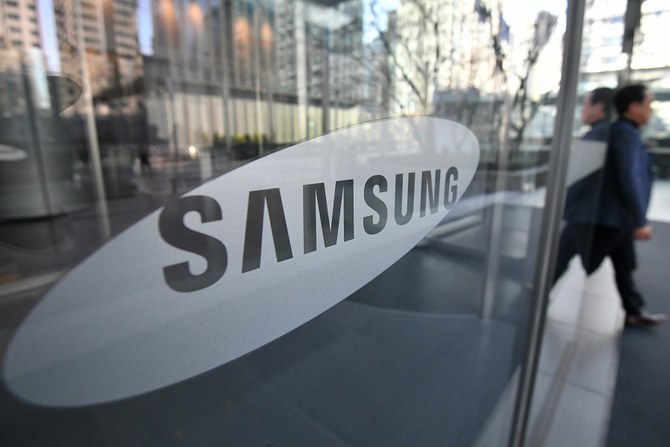
- Huawei has been rocked with promblems in the past weeks, including major revelations from tech giants
- Samsung is the world’s biggest smartphone maker which has been facing increasing competition from its Chinese rival
Saudi Arabia to host 28th World Investment Conference in Riyadh
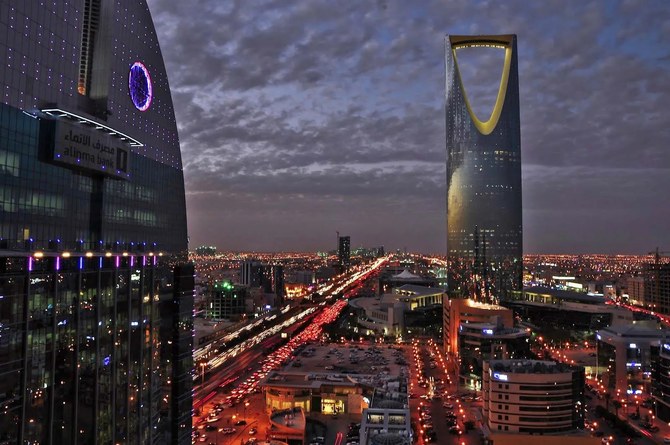
RIYADH: Saudi Arabia is on track to host the 28th World Association of Investment Promotion Agencies’ World Investment Conference from Nov. 25 to 27 in Riyadh.
The forum themed “Future-ready IPAs: Navigating digital disruption and sustainable growth,” will bring together leaders from investment promotion agencies, corporates, multilateral institutions, and other stakeholders to discuss global financial trends and opportunities, according to a statement.
The Kingdom’s selection as a host underscores its position as an international funding hub, according to Saudi Investment Minister Khalid Al-Falih.
“We are honored to be welcoming the global investment community to Saudi Arabia. Our strategic location at the crossroads of three continents, coupled with our world-class investment ecosystem and long-term political and economic stability, has seen the Kingdom develop into a global investment hub,” Al-Falih said.
“The World Investment Conference will serve as a platform to showcase our nation’s potential and forge partnerships that will shape the global investment landscape for years to come,” the minister added.
On WAIPA’s behalf, Executive Director and CEO Ismail Ersahin said: “WAIPA is honored that the 28th WAIPA World Investment Conference will be held in Riyadh, a city with a rich history and culture.”
Ersahin added: “With each edition, the WIC reaffirms its status as a guiding force for sustainable and inclusive development.”
He went on to stress how the conference is poised to be an impactful gathering aimed at the future readiness of IPAs.
Since 1995, the annual gathering has provided a forum for stakeholders to exchange insights and best practices and forge partnerships that drive economic development globally.
Saudi Green Building Forum set to obtain UNCCD’s permanent observer status
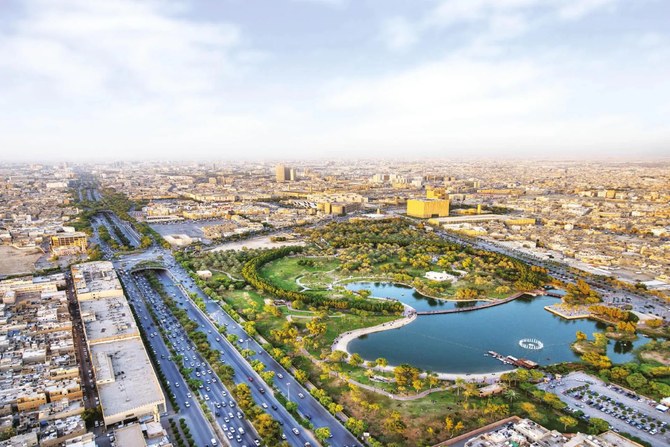
RIYADH: The Saudi Green Building Forum is set to obtain permanent observer status following the submission of a formal request to the UN Convention to Combat Desertification.
Pending a final decision during the 16th session of the Conference of the Parties to be held from Dec. 2-13 in Riyadh, this move underscores the forum’s efforts to enhance its role in sustainable development and combat desertification.
The forum, which has already been temporarily accredited, is involved in the proceedings based on the provisions of paragraph seven of article 22 of the convention and articles six and seven of the internal regulations of the COP, according to a press release.
This initiative is part of a broader strategy to integrate scientific and community-based approaches to environmental management.
Commenting on the development, Faisal Al-Fadl, secretary-general of the Saudi Green Building Forum, said: “We are pleased with the official notification from the UN Secretariat of the receipt of the required documents after a thorough review of the documents submitted for the accreditation of the forum as the first Saudi institution specialized in preparation for obtaining observer status for the Conference of the Parties to the UN Convention to Combat Desertification,” he stated.
“The efforts of local communities play a significant role in enhancing the sustainable development goals for people, plants, and prosperity through advocating for human experiences based on scientific rules and community health and well-being for healthy, fair, and resilient communities and cities, sufficient consumption and production, climate action in removing harmful carbon, and reducing the temperature to 1.5 degrees Celsius, addressing desertification, and managing natural resources and water,” he added.
The UN Secretariat confirmed the receipt of all necessary documents for the forum’s accreditation as an observer, encouraging further participation in the convention’s activities.
“After a thorough review of the documents submitted by your institution, we encourage you to continue participating in the implementation of the UN Convention to Combat Desertification and keep the secretariat informed of the activities,” the letter stated.
The Saudi Green Building Forum’s potential new status as a permanent observer at the UN Convention will enable it to contribute more effectively to global efforts against desertification, leveraging cooperation between developed and developing nations, particularly in sustainable land management and environmental restoration.
‘Two-state solution,’ investing in crisis resilience hold key to Mideast future, says Saudi minister
‘Two-state solution,’ investing in crisis resilience hold key to Mideast future, says Saudi minister
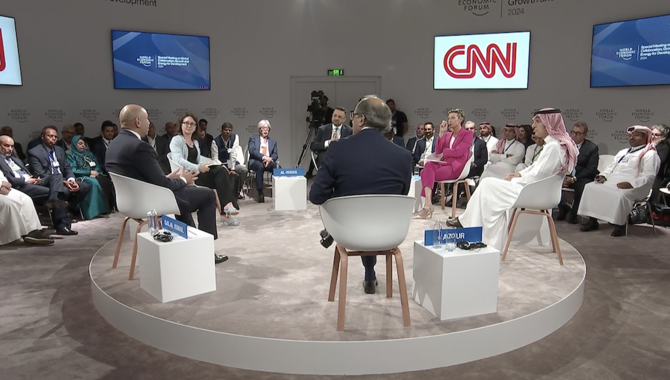
- Vision of regional development, prosperity ‘complicated by tensions,’ Adel Al-Jubeir tells WEF special meeting
LONDON: The key to getting the Middle East region back on track toward development and prosperity is ending the Gaza conflict, the Saudi minister of state for foreign affairs said on Sunday.
Adel Al-Jubeir, who was speaking at the World Economic Forum Special Meeting being held in Riyadh, said the Israel-Hamas conflict raging in the enclave only served to “undercut” any attempts to integrate the region and “unleash its potential.”
He added that, considering its young population, abundant natural resources and strategic geographical location, the Middle East had all the ingredients to be a successful region.
The goal of policymakers in Saudi Arabia and beyond was to ensure these elements benefitted everyone and better linked the Middle East region with the rest of the world, Al-Jubeir said.
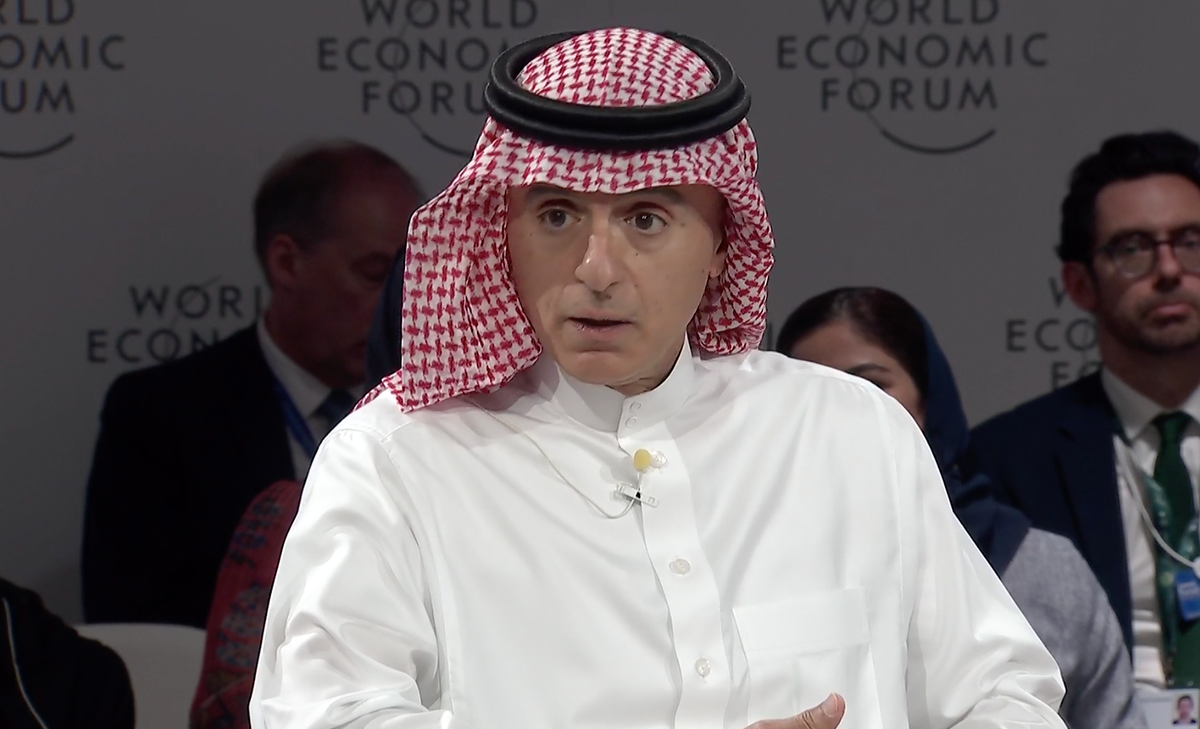
However, he said that this vision was “complicated by tensions” affecting the Middle East, and it was important to put an end to these in order to “focus on the things that matter” to developing its prosperity.
“(With the situation in Gaza), our number one priority is to stop the fighting,” he said. “Our second priority is to ensure enough humanitarian assistance goes into the Gaza Strip so that we avoid starvation, disease, and we take care of the people there,” he added.
“In the long term, we need to find a way to end this conflict (for good), and the only way we end it is by having a two-state solution, so we need to chart a clear, time-bound irreversible path to a Palestinian state.
“Saudi Arabia has said in terms of normalization (with Israel), this would be a part of that. The Arab world has had a position with regard to the Arab Peace Initiative, the US and the rest of the world supports this, so we need to make sure we stop the fighting, increase assistance and come up with a pathway to that Palestinian state,” he added.
When pressed by the panel moderator, CNN’s Becky Anderson, on whether a two-state solution would be possible with Benjamin Netanyahu and his right-wing government in charge in Israel, Al-Jubeir said it was in “everyone’s interest” to end the conflict.
“I’m not a mind reader or a psychiatrist; it’s not what I was educated in or my profession,” he said. “But what I can tell you is the interests of everybody in the region requires putting an end to this conflict, the potential that can be unleashed is tremendous, with good will, seriousness and foresight we should be able to get the ball over the goal line,” he added.
Mohamad Al-Ississ, Jordanian finance minister, also said the region had lurched from crisis to crisis over several decades, and told the WEF panel: “The one certain thing anybody can be certain of is that uncertainty is here to stay.”
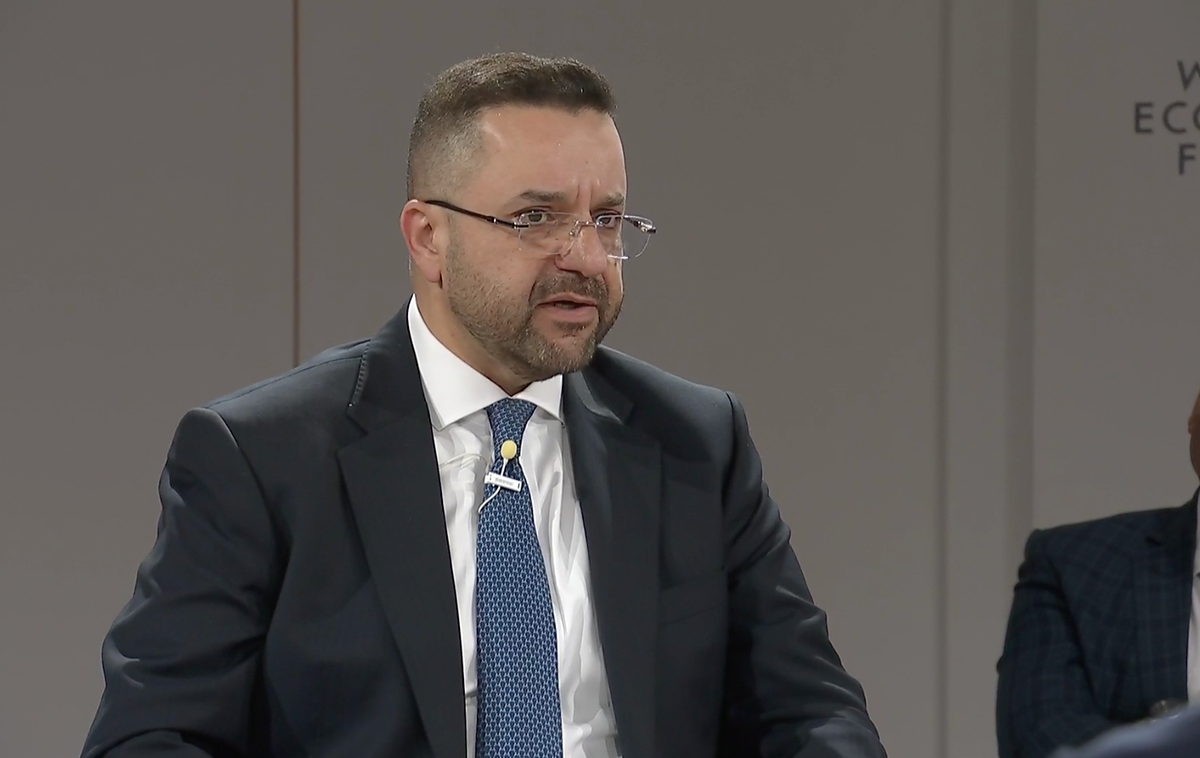
He said the role of policymakers in the Middle East should be investing and developing sectors that allowed the region’s economies to absorb and ride out the shock and impact that crises can have.
“The top priority is (determining) how to invest in enhancing your buffers, so that you can increase your resilience for when ‘black swan’ events, which have become the norm, unfold,” he said.
Ahmed Galal Ismail, CEO of UAE’s Majid Al-Futtaim Holding, agreed. He said that while peace and stability were “obviously indispensable to economic growth,” if the region just waited for it to happen, it could be “waiting for a long time.”
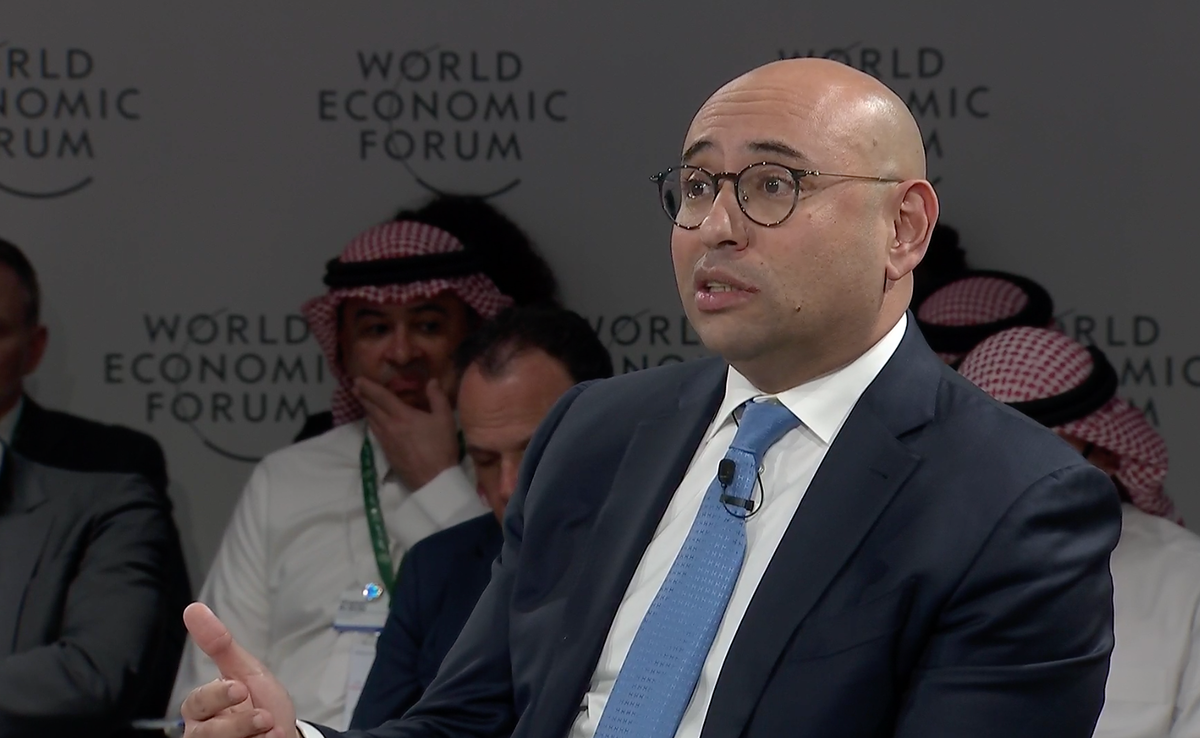
He cited an example of intra-Arab trading being at its highest-ever level, but added it was “anaemic” compared with other global blocs.
“We need to act. From a private sector perspective, we see opportunities independent from geopolitics and from the cruelty we see in parts of the region, so it is very important the actors in the sector are pragmatic, take the lead, and start what is needed to drive that economic integration.”
Closing Bell: Saudi benchmark index edged down to close at 12,381
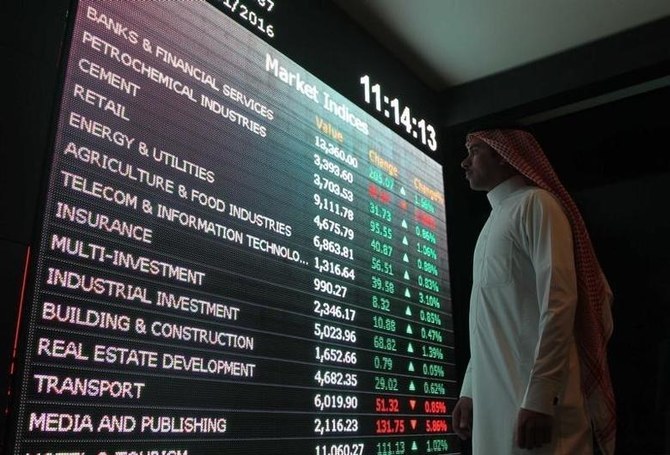
RIYADH: Saudi Arabia’s Tadawul All Share Index slipped on Sunday, losing 102.46 points, or 0.82 percent, to close at 12,381.95.
The total trading turnover of the benchmark index was SR3.64 billion ($972 million), as 29 of the stocks advanced while 201 retreated.
Nomu, the Kingdom’s parallel market, also dropped 414.9 points, or 1.55 percent, to close at 26,277.06. This comes as 11 of the stocks advanced while as many as 50 retreated.
Meanwhile, the MSCI Tadawul Index slipped 9.52 points, or 0.61 percent, to close at 1,553.88.
The best-performing stock of the day on the main index was Al-Baha Investment and Development Co. The company’s share price surged 7.69 percent.
Other top performers included Saudi Cable Co. as well as Fawaz Abdulaziz Alhokair Co.
The worst performer was ACWA Power Co., whose share price dropped by 5.76 percent to SR425.
Saudi Ground Services Co. as well as Al-Babtain Power and Telecommunication Co. also did not perform well.
On the announcements front, Saudi Tadawul Group approved the distribution of dividends worth SR276 million to shareholders for the fiscal year ending Dec.31, 2023, with SR2.3 per share and 23 percent share par value.
Moreover, Dr. Sulaiman Al-Habib Medical Services Group announced its interim financial results for the period ending March 31.
According to a Tadawul statement, the company’s net profit hits SR550 million in the first quarter of 2024, reflecting a 12.6 percent surge compared to the same quarter last year.
The increase was mainly driven by revenue growth due to the jump in the number of patients.
Saudi Arabian Amiantit Co. also announced its interim financial results for the first three months of 2024.
A bourse filing revealed that the firm’s net profit reached SR474 million in the first quarter of the year, up 23,672 percent from the corresponding quarter in 2023.
This climb is mainly attributed to the company’s accounting profits which amounted to SR639 million in the current quarter.
Additionally, Arab National Bank announced its interim financial results for the first quarter of the year.
According to a Tadawul statement, the firm’s net profits rose 15.73 percent against the same quarter of the prior year to hit SR1.23.
The increase is primarily linked to net special commission income, net fees and commission income, and dividend income, among other reasons.
Saudi Steel Pipe Co. also announced its interim financial results for the period ending March 31.
A bourse filing revealed that the company’s net profit reached SR76 million in the first quarter of 2024, a 1,166 percent jump from the corresponding quarter in 2023.
This rise is due to an increase in gross profit coupled with a decrease in selling, marketing, and distribution expenses and a drop in trade receivable bad debt provision.
Meanwhile, Savola Group Co. announced the submission of an application to increase its capital by offering rights issues to the Capital Market Authority.
NEOM hosts global financial institutions, showcases progress and investment opportunities
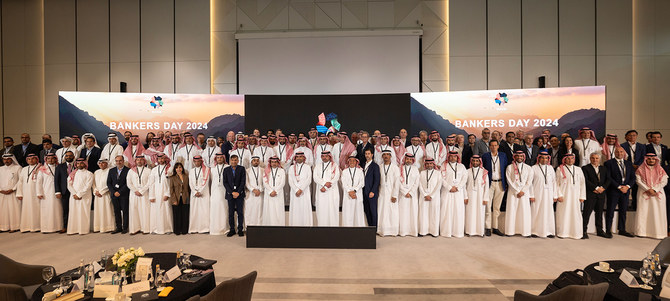
RIYADH: Saudi giga-project NEOM hosted 52 global, regional, and local financial institutions, showcasing ongoing progress across key projects and highlighting investment opportunities.
The meeting also reviewed the progress and latest developments in key NEOM undertakings, including The Line, Oxagon, Trojena, and Sindalah, scheduled to open later this year.
The event showcased the giga-project’s commitment to sustainable growth and development, underscoring its focus on environmental, social, and governance principles.
A notable aspect of the visit included a review of The Line, where dignitaries observed the rapid progress of phase one construction and gained deeper insights into the initiative’s design.
Nadhmi Al-Nasr, CEO of NEOM, said: “Since inception, we have been establishing strong partnerships to help drive this grand vision forward. NEOM’s vast scale and expertise offer strong and ongoing commercial opportunities for global organizations, including financial institutions.”
He added: “We were pleased to host guests from some of the world’s leading financial institutions in NEOM recently to discuss collaborative avenues. NEOM is open for business and we welcome all interested parties to be part of our continued success.”
The event drew representatives from 24 international banks and financial institutions, including those from Germany, Spain, and France, as well as the UK, the US, and China. Additionally, representatives from Japan and South Korea attended the event.
In addition, 13 regional banks from Qatar, Kuwait, and the UAE attended, alongside 15 financial institutions from Saudi Arabia.
In June 2023, NEOM launched the largest public-private partnership for accommodation, valued at over SR21 billion ($5.67 billion).
It also announced an SR37.5 billion joint venture with global logistics company Denmark’s DSV in October 2023 to provide logistics services for the giga-project.
These announcements, along with other NEOM partnerships, were well-received by attendees at Discover NEOM China, an event held in Beijing, Shanghai, and Hong Kong earlier this month. The event attracted more than 500 senior business and industry leaders.
SR10bn credit facility
NEOM also announced the signing of a credit facility worth SR10 billion to meet its short-term financing requirements.
The facility, structured on Murabaha principles, is aimed at supporting the developmental stages of flagship projects like The Line, Oxagon, Trojena, and Sindalah.
Al-Nasr emphasized the strategic alignment of these credit facilities with the Kingdom’s broader economic goals under Vision 2030.
In a press release, he highlighted the collaborative effort of leading Saudi financial institutions in supporting one of the world’s most ambitious projects by providing diverse financing solutions that bolster NEOM’s infrastructure initiatives.
The agreement has garnered significant attention, involving nine prominent banks such as the National Commercial Bank, Riyad Bank, and Saudi First Bank, alongside other key financial players.




